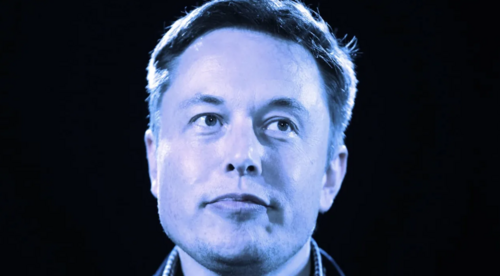
By Jason Nelson

Elon Musk. Image: Shutterstock
"I am the reason OpenAI exists," Tesla and Twitter CEO Elon Musk said Tuesday in an interview with CNBC.
When asked by interviewer David Faber how much he invested in the creator of ChatGPT, Musk replied, "I'm not sure the exact number, but it's some number on the order of $50 million."
"It wouldn't exist without me," he added.
Elon Musk co-founded OpenAI with Sam Altman, Greg Brockman, Ilya Sutskever, John Schulman, and Wojciech Zaremba in December 2015.
"I was instrumental in recruiting the key scientists and engineers, most notably Ilya Sutskever," Musk said. "Ilya joining was the linchpin for OpenAI being ultimately a success."
Nearly seven years later, in November 2022, OpenAI launched the first iteration of its ChatGPT chatbot, the successors of which have taken the world by storm.
The name OpenAI, Musk said, refers to open-source software. Open-source ideals call for making the source code of a program or platform freely available and may be redistributed and modified.
Musk said the idea was to create the opposite of Google, which Musk called a closed-source for-profit company.
"That profit motivation can be potentially dangerous," he said.
Musk said he and Google co-founder Larry Page would have long conversations discussing artificial intelligence.
"I would be constantly urging him to be careful about the danger of A.I.," Musk said. "He was really not concerned about the nature of AI and was quite cavalier about it."
In 2014, Google acquired a UK-based artificial intelligence research laboratory, DeepMind Technologies, for $500 million.
But while the idea of taking on Google may have been appealing, Musk says he initially thought it was a hopeless endeavor.
"How could we possibly compete with—how could OpenAI possibly compete with—Google DeepMind?" he said. "This seemed like an ant against an elephant not a contest."
Musk voiced concerns about what he sees as OpenAI's shift to a closed-source for-profit model like Google.
"It does seem weird that something can be a nonprofit, open-source, and somehow transform itself into a for-profit, closed source," he said, likening it to an environmental organization created to save the Amazon rainforest that transforms into a lumber company.
"I also think it's important to understand, when push comes to shove—let's say they do create some digital super intelligence, almost godlike intelligence, who's in control?"
Musk also noted his concern regarding the relationship between OpenAI and software giant Microsoft, which has invested $13 billion in the company since 2019.
"I do worry that Microsoft actually may be more in control than, say the leadership team at OpenAI realizes," he said, adding that Microsoft has rights to all of the software and everything necessary to run the inference system, which gives them a great deal of control over OpenAI.
Calling artificial intelligence a double-edged sword, Musk said the technology is likely to make life much better, creating an age of abundance.
“There's some chance that it goes wrong and destroys humanity,” he said, adding that chance is small, but it's not zero.
In March, Musk and several high-profile tech community members, including Apple co-founder Steve Wozniak, signed an open letter calling for a six-month moratorium on AI development after the launch of OpenAI’s GPT-4.
“A friend of mine, Max Tegmark, a physicist at MIT, wanted me to sign onto the letter,” he said. “I knew it'd be futile. I just wanted to call it like it's one of those things for the record, I recommended that we pause,” he said. “Did I think we would? Of course, absolutely not.”
